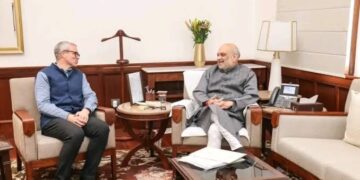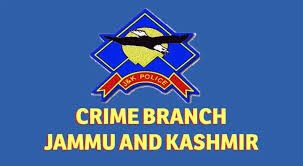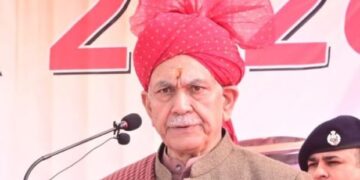Srinagar: The High Court of Jammu & Kashmir and Ladakh has ruled that a mere pronouncement of the word ‘Talaq’ three times by the husband is not enough to end a Muslim marriage.
The High Court was hearing a case where an estranged wife had initially secured an ex-parte maintenance order in 2009. This was challenged by the husband. The dispute reached the High Court and the matter was remitted back to a trial court in 2013.
In February 2018, the trial court ruled in favour of the husband by finding that the parties were no longer married. However, an Additional Sessions Court set aside this order and ordered the man to pay a monthly maintenance of Rs 3,000 to the wife.
This was challenged by the man (petitioner) before the High Court in 2018.
In submissions before the High Court, the petitioner clarified that he did not pronounce instant triple ‘Talaq’, which was struck down by the Supreme Court as unconstitutional in the Shayara Bano case.
He also placed on record a ‘Talaknama’ (divorce deed) conveyed to his wife.
The court, however, was not impressed by these arguments.
“Petitioner has placed on record copy of Talaknama … the penultimate paragraph thereof reveals that the petitioner, in order to put an end to the wedlock, has made three pronouncements of Talak, thereby declaring that he has divorced her and relieved her out of the wedlock. According to the petitioner, he has conveyed Talaknama to the respondent (wife). It may be made clear that such a practice in law is deprecated,” the court said.
The judge — Justice Vinod Chatterji Koul — held that the mere pronouncement of the word ‘Talaq’ (a form of divorce) three times by a husband is not enough to end a Muslim marriage nor to escape obligations such as the duty to maintain one’s wife.
The High Court held that there are several accompanying acts to be carried out, including the need to pronounce ‘Talaq’ at a specific interval, the presence of witnesses and reconciliation.
“For making divorce (Talaq) valid, it is not enough that it is pronounced in presence of two witnesses. The witnesses must be endued with justice as the purpose is to ensure that the witnesses, prompted by their sense of justice, may request and persuade the spouses on the verge of separation to calm down, resolve their disputes and lead a peaceful marital life,” the court said.
In this regard, reliance was placed on the High Court’s 2012 ruling in Mohammad Naseem Bhat v/s Bilquees Akhter and another.
Justice Koul added that a husband who wishes to evade any obligation to maintain his wife by claiming that he divorced her must not only prove that he pronounced Talaq or executed a divorce deed, but also prove the following:
“That efforts are made by the representatives of both husband and wife to settle the marital dispute, and that such efforts were not fruitful;
“That there is a valid reason and genuine case for the divorce;
“That ‘Talaq’ was pronounced in the presence of two witnesses endued with justice;
“That ‘Talaq’ was pronounced during a period of ‘Tuhr’ (between two menstrual cycles) without indulging in sexual intercourse with the divorcee during the said Tuhr.
“It is only after the husband pleads and proves all the above ingredients that divorce (Talaq) would operate and marriage between the parties would stand dissolved so as to enable the husband to escape obligations under the marriage contract, including one to maintain his wife. The court in all such cases would give a hard look to the case projected by the husband and insist on strict proof,” the court said.







